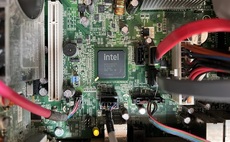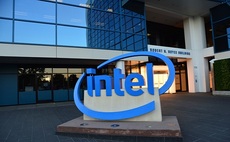Google, McAfee and Microsoft shared the stage with other industry giants at this year's Intel Developer Forum
The three-day Intel Developer Forum (IDF) in San Francisco, which played host to several key announcements and themes, finished yesterday. Intel's CEO, Paul Otellini, outlined in a keynote Intel...
To continue reading this article...
Join Computing
- Unlimited access to real-time news, analysis and opinion from the technology industry
- Receive important and breaking news in our daily newsletter
- Be the first to hear about our events and awards programmes
- Join live member only interviews with IT leaders at the ‘IT Lounge’; your chance to ask your burning tech questions and have them answered
- Access to the Computing Delta hub providing market intelligence and research
- Receive our members-only newsletter with exclusive opinion pieces from senior IT Leaders



















